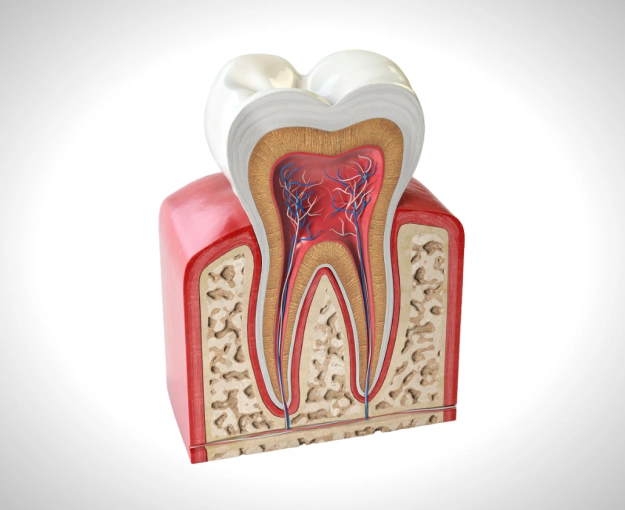
Restore Oral Health
Pain-Free Root Canal Solutions
A root canal is a dental procedure designed to save a tooth that is severely infected or damaged. At DentRight Dental San Antonio, our experienced dentists utilize advanced techniques and state-of-the-art technology to perform root canal treatments that are both effective and comfortable. By removing the infected pulp and sealing the root canals, we can prevent the spread of infection, alleviate pain, and preserve your natural tooth, avoiding the need for extraction and potentially costly dental implants.
What is a Root Canal?
A root canal is a dental procedure that involves removing the infected or damaged pulp from the inside of a tooth.
The pulp, located at the center of the tooth, contains nerves and blood vessels. When bacteria reach the pulp through a deep cavity or crack, it can lead to infection and severe pain.
Why Do I Need a Root Canal?
A root canal may be necessary if you experience persistent tooth pain, sensitivity to hot or cold temperatures, swelling or tenderness in the gums, a dark spot on the tooth, or a persistent bad taste in your mouth. These symptoms often indicate an infection or damage to the tooth's pulp, the soft tissue inside the tooth that contains nerves and blood vessels.
Types of Root Canal Procedures
While the standard root canal procedure is the most common, there are a few variations based on specific dental conditions:
- Standard Root Canal: This is the most common type of root canal procedure. It involves removing the infected pulp, cleaning and shaping the root canals, and sealing them with a filling material.
- Root Canal Retreatment: If a previously treated tooth becomes reinfected, a root canal retreatment may be necessary. This involves removing the old filling material, cleaning and shaping the canals again, and sealing them with a new filling.
- Apicoectomy: This is a surgical procedure performed when a standard root canal fails to resolve the infection. The dentist removes the infected tissue at the tip of the root and seals the area to prevent further infection.
- Pulpotomy: This procedure is typically performed on primary (baby) teeth. It involves removing the infected pulp from the pulp chamber while preserving the healthy pulp in the roots. A stainless steel crown is often placed over the tooth to protect it.
It's important to note that the specific type of root canal procedure will be determined by your dentist based on your individual needs and the severity of the infection.
The Root Canal Procedure
During a root canal, our dentist will:
- Anesthesia: Administer local anesthesia to numb the area, ensuring a pain-free procedure.
- Access the Pulp: Create a small opening in the tooth's surface to reach the infected pulp.
- Remove the Pulp: Carefully remove the infected pulp using specialized dental instruments.
- Clean and Shape the Canals: Thoroughly clean and shape the root canals to remove all infected tissue.
- Seal the Canals: Fill the cleaned canals with a biocompatible material to prevent future infection.
- Place a Temporary Filling: A temporary filling is placed to protect the tooth until a permanent restoration is applied.
Choosing the Right Professional: Dentist or Endodontist
While both general dentists and endodontists are qualified to perform root canal procedures, endodontists specialize in treating the root canal system. They have additional training and expertise in diagnosing and treating complex dental problems, including root canals.
When to Consider an Endodontist:
- Complex Root Canal Cases: If your root canal is particularly challenging due to its shape, curvature, or multiple roots, an endodontist may be the best choice.
- Root Canal Retreatment: If a previous root canal has failed, an endodontist's specialized skills can increase the chances of success.
- Severe Tooth Damage or Infection: In cases of significant tooth damage or infection, an endodontist can provide advanced techniques and treatments.
Root Canal Aftercare
After the procedure, you may experience some temporary discomfort, which can be relieved with over-the-counter pain medication. It's important to avoid chewing on the treated tooth until a permanent restoration is placed. Regular dental check-ups are crucial to monitor the health of your treated tooth and address any potential issues.

